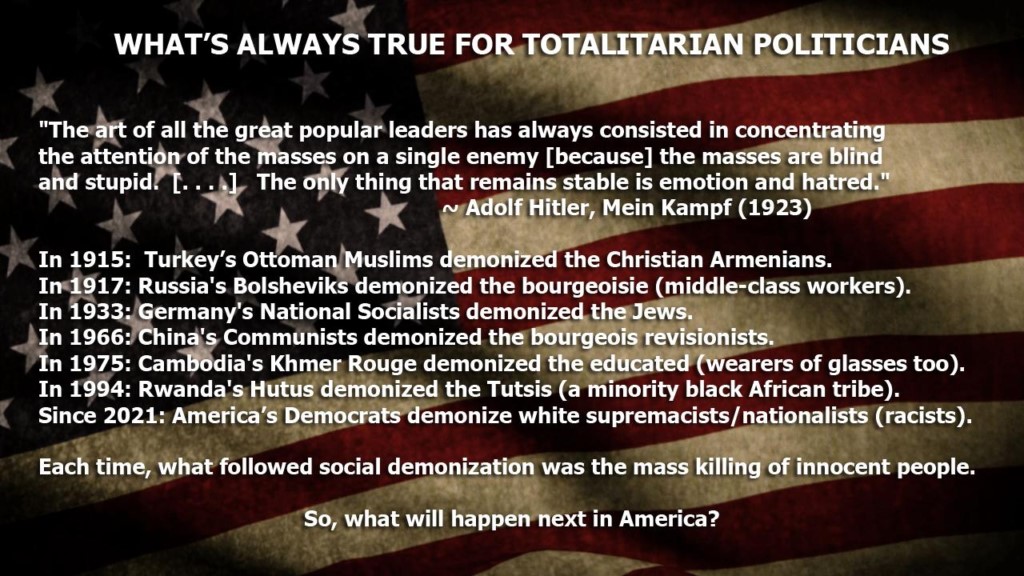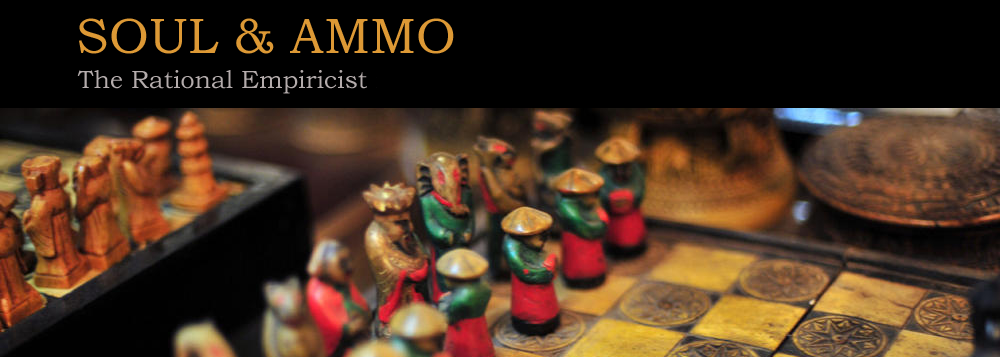At a commencement speech delivered this past weekend at Howard University, a famous, historically black college, President Biden once again raised the specter of “white supremacy”, affirming his eerie practice of scapegoating on the basis of race in our nation’s political discourse. According to Biden, “[T]he most dangerous terrorist threat to our homeland is white supremacy.” Never before in American history has a mainstream-party politician — much less a sitting president of the United States — ever so publicly resorted to a textbook tactic of totalitarian leaders worldwide. Joe Biden is now sounding this trope with almost every speech, in the early run-up to the 2024 national elections. Certainly, this is a portentous, frankly ominous, sign for the future of politics in America, based on the world’s history in the last century or so. This short review is highly instructive:

In apartheid-era South Africa (1948-1994), leaders of the ruling National Party regularly warned white voters of die swart gevaar (“the black peril”) as a means of scaring them into voting Nationalist instead of for either the United Party or the Progressive Party, both of which supported extending the voting franchise in varying degrees beyond just white people to citizens who were black or brown in skin color. The overwhelming majority of whites voted accordingly, rendering South Africa a virtual parliamentary dictatorship of one party and one white ethnicity (the Afrikaners). Throughout the age of apartheid, there were many governmental abuses of power, against not only blacks, Indians, and Coloreds (mixed-race people of partial white descent) but also whites who would not fully, completely conform to all of the strictures of “separate development.” The certain, increasing minority in the country over time of white South Africans overall, the economic and social pressures of increasing international sanctions, growing violence by and among blacks in their residential townships, and a changing consciousness among some elements of the Afrikaner elites all conspired in the late 1980s to move the National Party leadership to begin dismantling the edifices of racial separation — and thereby avoid a race-based war of catastrophic proportions. While post-1994 South Africa has had, and continues to have, many problems, including some dealing with race and language, a readily looming, internecine civil war is not one of them at this time.
In the America of today, given that the leaders of the Democratic Party — substantially in control of all national political power and vitally aided in remaining so by all of Big Media, Big Tech, Big Banking, Big Corporate, Big Academia, Big Culture, and the Deep State — is demonizing the majority demographic of the domestic populace, can an independent and sovereign republic dedicated to individual rights, equality, the universal rule of law, and federalism survive much longer? It remains to be seen, but through the lens of history the prospects seem rather dim.
